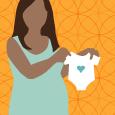May 2016 Moms
 TheThornBird
member
TheThornBird
member
Paging our friendly neighborhood pharmacist!
I remember we have a pharmacist here in May 2016 who started an "Ask A Pharmacist" thread (which I couldn't find, because TB's search function sucks).
If you are still around, I'd *love* to hear about allergy meds! The pollen here is ridiculously awful and I can't breathe. My midwife didn't have much information for me (and was very "suck it up, buttercup!") and Dr. Google isn't much help. I'm dying and would love to know what is and isn't safe!
If you are still around, I'd *love* to hear about allergy meds! The pollen here is ridiculously awful and I can't breathe. My midwife didn't have much information for me (and was very "suck it up, buttercup!") and Dr. Google isn't much help. I'm dying and would love to know what is and isn't safe!





Re: Paging our friendly neighborhood pharmacist!
In regards to MEDICATIONS in pregnancy, we ask that you try to limit your exposure to medications (including over-the-counter medications and herbal products). If, however, you find you need treatment for any of the following conditions, the medications listed below may be used.
For severe symptoms of cold/sinus/allergies, you may use an over-the-counter decongestant or antihistamine such as Claritin, Claritin-D, Sudafed, Benadryl, Tylenol Cold/Sinus/Flu, Contac, Theraflu or Triaminic products for a short period of 3 to 5 days. Commercial cough syrups or cough drops on a short 3 to 5 days basis is acceptable (Robitussin DM, Vicks 44E). We discourage the use of nose sprays during pregnancy. Nose bleeds are common in pregnancy. If you have great chest congestion or discomfort, fever or yellow, green or bloody sputum, call the office. For a sore throat, salt water gargles or over-the-counter sprays and lozenges are acceptable. If your throat should remain severely sore for more than 3 to 7 days, call the office for a possible throat culture.
My allergies have been so much worse this season, so I have used Tylenol sinus on a few occasions. If you have risk factors or are otherwise concerned, though, you should probably call your midwife and ask her directly whether a particular medication would be safe for you.
Ok so heres the low down on what you can use
nasacort nasal spray - use every day to take down swelling and inflammation caused by the allergies
drowsy antihistamines like Benadryl
claritin WITHOUT the decongestant (the non drowsy ones aren't considered as safe as the drowsy ones but Claritin is fine)
don't overlook a good saline rinse too!!
Hope that helps. Ask more if you need to!
Generally, most of the non-decongestant containing allergy meds would be safe to use in pregnancy. Opt for a single ingredient product rather than a combination product, so you can be sure of what you are taking. The following are generally considered safe when taken as directed at normal doses:
Claritin (generic name loratadine)- day time
Zyrtec (generic name cetirizine)- day time
Steroid nasal sprays like Flonase, Rhinocort or Nasocort- but you have to use them continuously for the entire allergy season for them to work
Benadryl (generic name diphenhydramine)- night time, this one will knock you out
Allegra does not have much data in pregnant women, it is likely safe, but there is better safety data in the aforementioned. I would avoid any behind the counter product that contains psuedoephedrine, or "the D's" as I like to call them (Allegra-D, Zyrtec-D, sudafed, etc). These can all raise blood pressure, increase heart rate, and will keep you awake at night. The same goes for in front of the counter decongestant phenylephrine or "the PE's" (Sudafed PE and such) for the same reasons. Saline nasal sprays or netti pots are always safe... but I haven't found them terribly useful.
Hope that helps! If you have any other drug questions, feel free to ask! It is literally my job
What do you think about Afrin? I couldn't get a straight answer if it's bad for the baby, just that you can become dependent on it.
jessRX I'm losing my job here with you answering all the questions for me. I was feeling useful before!
Just remember that when they get all stuffy from a cold there's nothing you can use except saline drops and a snot sucker. None of the OTC cold medicines are safe in infants (in Canada they're not allowed for children under 6-I don't know the regulations in the states though)
Hope that helps
ETA: I found this piece of info:
In pediatrics: Exposure to NSAIDs increases risk of acute kidney injury, even with normal doses. Ensure proper hydration status of children when on NSAID therapy.
I interpret that to mean, only use if a doctor tells you so.